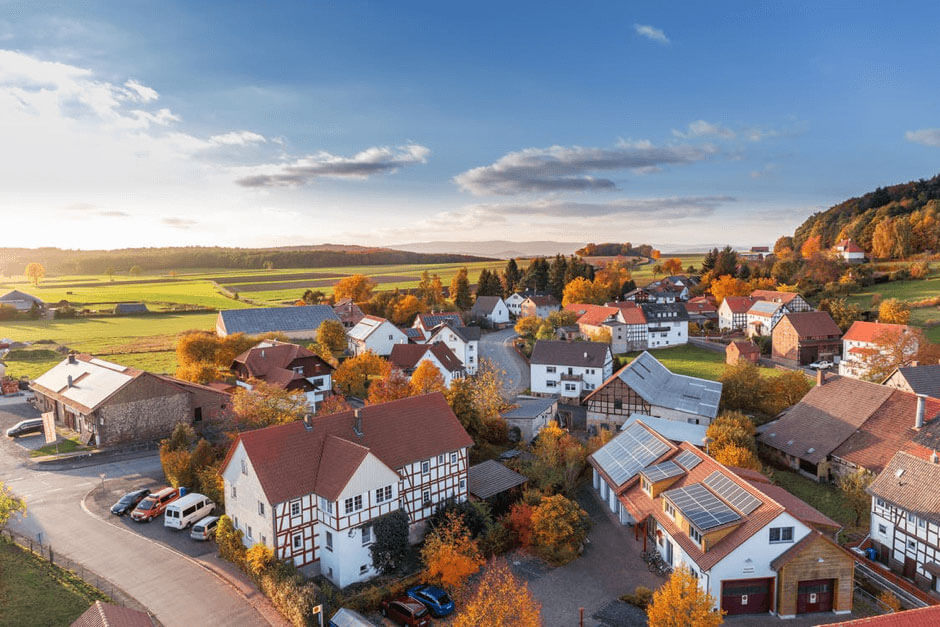
COVID-19 has been a nationwide – if not a global – trial period for remote working. Businesses that never considered allowing employees to work from home have had their hands forced, and it may just influence the way businesses operate in the future.
Both Facebook and Google have already declared that remote working is here to stay. Their employees capable of doing their tasks from home are allowed to continue working remotely until the end of 2020 at least!
A new trend in the way we work may be about to emerge. But how will this trend affect other aspects of our life? There are logical arguments that housing demands may be revolutionised by making remote working the norm. In fact, it might just be one more reason to move to Bristol or other green cities in the near future.
The Rise of Remote Working
Once upon a time, remote working was only for a select few people in certain professions. Often these workers were involved with technology, such as website designing. Their jobs were based with and on the online world.
Due to improving technologies such as video conferencing apps like Zoom and project management tools such as Trello, remote working has slowly become possible for the masses. But it’s not just the technologies that facilitate a growth in remote working, people themselves are drivers of the trend.
Millennials and younger generations boast a greater desire to start their own businesses, online side gigs and show a greater entrepreneurial spirit. Merged with developments in the aforementioned technologies, the perfect recipe for remote working is unfolding in front of our eyes.
The only thing dragging its heels on a new remote working world for the masses are companies themselves. Fearful of losing out on productivity, some companies would rather keep workers at their office desk. But most workers want to experience flexible and remote working to manage work with their personal commitments, yet, businesses can benefit as well through:
- Reduced office space requirements
- Reduced office expenses
- Increased employee retention
- Increased productivity (Scientific research has found that 83% of companies experienced increased productivity through flexible working)
The pandemic may have opened up business minds to the idea of remote working, even if for part of the week. The recent actions of Facebook and Google may well be seen in other industries soon.
So, How Could Remote Working Change Property Demands?
At the moment, property prices usually increase as they get closer to the main business districts of large towns and cities. Their proximity to main working locations reduces commuter time, one of the biggest deciding factors for professionals buying and renting property.
Interestingly, The Independent reported on research that discovered short commuting times made busy Londoners happier than their sex lives.
However, properties close to office spaces today may not be as appealing if the remote working trend takes off. With no office to go to for all or most of the week, larger properties away from city centres in suburbs and smaller towns could be top of buyers’ demands.
Bristol to Become Even More Appealing?
Overall, remote working could change house valuations and where people want to live. Simultaneously escaping other issues inner-city residents face like poor air quality and noise pollution. It may drive an exit from the UK’s most polluted cities like London, Manchester, Leeds and Liverpool for cleaner and greener areas.
Bristol and its leafy suburbs could become one of the new cities people flock to away from the likes of London. Bristol has been reinventing itself over the last decade and is fast becoming a thriving place for local businesses, green initiatives and families.
Here are some of Bristol’s current highlights:
- Bristol is the first UK city with plans to ban diesel vehicles from its busiest areas.
- A number of housing developments are in motion and many of them are being built with environmental practices/materials.
- What housing crisis? Shortages of houses are a UK-wide issue, but Bristol has come up with some quirky and unique ways of attacking the problem.
- Locals enjoy plenty to see, do, drink and eat with annual events across the calendar.
- In 2019, Bristol was voted the happiest city in Britain.
Bristol’s Ideal Remote Working Areas
Bristol is nestled between Somerset and Gloucestershire and home to around half a million people. Yet, the population density of Bristol is much less than some of the other big cities in the UK. Families already flock to specific areas of Bristol to live, and these areas may become in-demand among remote workers of the future, such as:
- Clifton: the Clifton area is already popular among professionals. One of the reasons is because of its prime location. However, even remote workers may enjoy this slice of Bristol because of its local art shows and plentiful amenities.
- St Werburgh’s: north of the city centre is a fantastic place to live for families and nature lovers. St Werburgh’s includes a community urban farm, climbing walls and multiple green housing developments waiting for new residents.
- Southville: Victorian terraces line up near the water in an area of Bristol straight off a fudge tin. It is one of the more relaxing areas close to the centre and boasts a Tobacco Factory theatre and a selection of hip bars and cafes.
Bristol Removal Company: On the Dot Removals at Your Service!
If you are moving to Bristol to escape the humdrum of the bigger cities, we can help!
On the Dot Removals is an experienced removal company operating across the UK, often relocating excited families into their new Bristol property.
We operate a service that is as green as possible to align ourselves with the local communities and their environmental revolution.
For more information on our Bristol removals company, contact our friendly team waiting to help!
